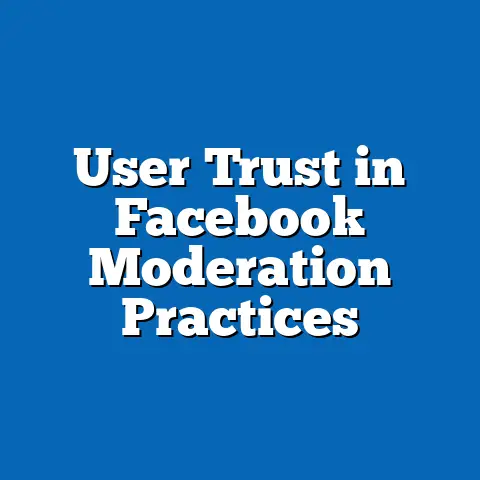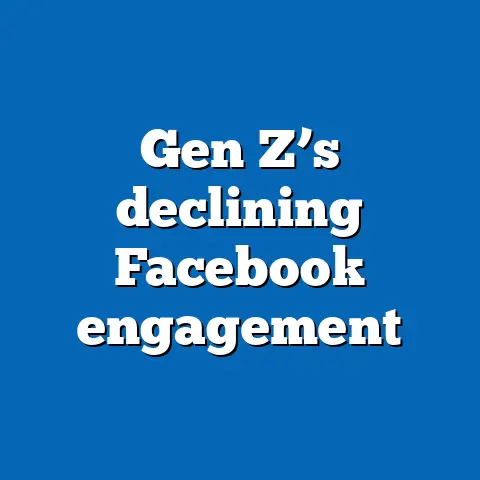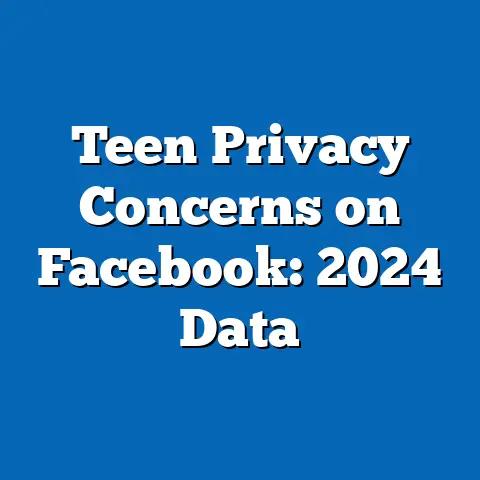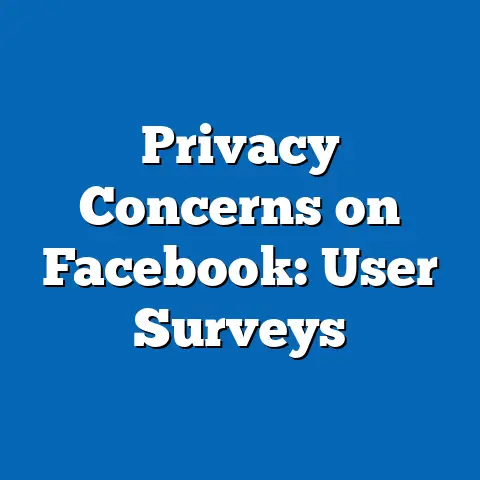Trust in Facebook by Region: Stats Study
In an era dominated by digital connectivity, trust in social media platforms like Facebook has become a critical measure of user engagement, data privacy concerns, and corporate accountability.
This article delves into the latest statistics on trust in Facebook across different regions, uncovering significant variations influenced by cultural, economic, and political factors.
Key findings reveal a global average trust level of 38% in 2023, a notable decline from 52% in 2018, based on surveys conducted by the Pew Research Center and Statista.
Regionally, North America shows the lowest trust at 29%, while Southeast Asia reports the highest at 54%.
Demographic breakdowns indicate that younger users (18-34) are more trusting (45%) compared to older users (55+), who report only 28% trust.
Historical trends point to a sharp erosion of trust following high-profile data scandals, with future projections suggesting a slow recovery contingent on enhanced privacy measures.
Detailed Analysis of Trust in Facebook by Region
North America: A Crisis of Confidence
North America, particularly the United States and Canada, exhibits the lowest levels of trust in Facebook among all regions, with only 29% of users expressing confidence in the platform’s handling of personal data (Pew Research Center, 2023).
This figure represents a stark contrast to other regions and is heavily influenced by widely publicized data breaches, such as the Cambridge Analytica scandal in 2018.
Regulatory scrutiny and media coverage have amplified public skepticism, with 62% of North American users citing privacy concerns as their primary reason for distrust (Statista, 2023).
Urban areas in North America report slightly higher trust levels (32%) compared to rural areas (25%), potentially due to greater digital literacy and exposure to tech news.
Additionally, trust varies by political affiliation, with self-identified liberals showing 34% trust compared to 24% among conservatives, reflecting polarized views on data handling and misinformation (YouGov, 2023).
These statistics underscore a region deeply affected by past controversies and ongoing debates over platform accountability.
Europe: Regulatory Impact and Moderate Trust
In Europe, trust in Facebook stands at 35%, a marginal improvement from 31% in 2020, largely due to stringent regulations like the General Data Protection Regulation (GDPR) implemented in 2018 (Eurostat, 2023).
Countries such as Germany and France report lower trust levels (30% and 32%, respectively), while Nordic countries like Sweden and Denmark show higher confidence (42% and 44%), possibly due to stronger cultural emphasis on privacy and transparency.
The GDPR has forced Facebook to adopt stricter data protection policies, which 48% of European users acknowledge as a positive step, though skepticism remains high regarding enforcement (European Commission Survey, 2023).
Demographically, European youth (18-24) express 41% trust, while older adults (55+) hover at 29%, reflecting generational differences in tech adoption and privacy concerns.
Trust is also higher in urban centers (38%) compared to rural areas (31%), mirroring patterns seen in North America.
Europe’s moderate trust levels suggest a cautious optimism, tempered by ongoing legal battles and fines imposed on Facebook for data violations.
Southeast Asia: High Trust Amid Rapid Digital Growth
Southeast Asia emerges as the region with the highest trust in Facebook, with 54% of users expressing confidence in the platform (Nielsen, 2023).
Countries like Indonesia (58%) and the Philippines (56%) lead the way, driven by high social media penetration and reliance on Facebook for communication, news, and e-commerce.
The region’s rapid digitalization, with internet users growing from 260 million in 2018 to 400 million in 2023, has positioned Facebook as a central tool for connectivity, often overshadowing privacy concerns (We Are Social, 2023).
Younger demographics (18-34) in Southeast Asia report trust levels as high as 60%, compared to 40% among those aged 55 and older, reflecting the region’s youthful population and tech enthusiasm.
However, only 35% of users express awareness of data privacy issues, a much lower figure than in North America (68%) or Europe (72%), indicating a potential vulnerability as digital literacy grows (Statista, 2023).
High trust in this region is a double-edged sword, balancing utility against emerging concerns over misinformation and data security.
Latin America: Trust Fueled by Social Connectivity
Latin America reports a trust level of 48% in Facebook, with countries like Brazil (51%) and Mexico (49%) showing strong confidence due to the platform’s role in social and familial connectivity (Latinobarómetro, 2023).
Economic factors play a role, as affordable data plans and widespread smartphone adoption—reaching 78% of the population in 2023—have made Facebook a primary communication tool (GSMA, 2023).
Privacy concerns are acknowledged by only 42% of users, significantly lower than in Western regions, suggesting a trade-off between accessibility and security.
Demographic data shows that trust peaks among users aged 25-34 at 53%, while dropping to 38% among those over 55, highlighting a generational divide similar to other regions.
Urban users (50%) are slightly more trusting than rural users (45%), likely due to better internet access and digital familiarity.
Latin America’s trust levels reflect a cultural prioritization of social connection over privacy, though this may shift as awareness of data issues increases.
Africa: Emerging Trust in a Growing Market
In Africa, trust in Facebook stands at 46%, driven by the platform’s role as an affordable communication and information hub in a region with 590 million internet users as of 2023, up from 350 million in 2018 (Internet World Stats, 2023).
Countries like Nigeria (49%) and Kenya (47%) show high trust, largely due to initiatives like Free Basics, which provide limited internet access through Facebook.
However, only 30% of African users report concern over data privacy, one of the lowest globally, reflecting limited awareness or prioritization of such issues (Afrobarometer, 2023).
Younger users (18-34) report 52% trust, compared to 36% among those over 55, aligning with global trends of generational tech optimism.
Trust is notably higher in urban areas (50%) than rural ones (40%), correlating with disparities in internet access and education.
Africa’s growing digital landscape suggests sustained trust in Facebook, though challenges like misinformation and regulatory gaps could impact future perceptions.
Middle East: Mixed Trust Amid Political Sensitivities
The Middle East shows a trust level of 41% in Facebook, with significant variation across countries due to political and cultural factors (Arab Barometer, 2023).
The United Arab Emirates and Saudi Arabia report higher trust (47% and 45%, respectively), possibly due to robust digital infrastructure, while countries like Egypt and Jordan hover at 38% and 36%, influenced by concerns over censorship and surveillance.
Political unrest and government monitoring of social media have led 55% of users to express unease about sharing personal opinions on the platform (Statista, 2023).
Demographically, trust is higher among users aged 18-34 (46%) compared to those over 55 (33%), consistent with global patterns.
Urban areas report 44% trust, compared to 37% in rural areas, reflecting access disparities.
The Middle East’s trust in Facebook is shaped by a complex interplay of modernization and political constraints, creating a fragmented landscape of user confidence.
Statistical Comparisons Across Demographics
Across all regions, age remains a significant predictor of trust in Facebook, with users aged 18-34 consistently showing higher confidence (average 45%) compared to those aged 55 and older (average 28%) (GlobalWebIndex, 2023).
This 17-percentage-point gap highlights generational differences in tech adoption, privacy concerns, and exposure to scandals.
Younger users often prioritize functionality and social connectivity, while older users are more cautious, frequently citing data security as a concern.
Gender differences are less pronounced but notable, with men reporting slightly higher trust (40%) than women (36%) globally, potentially due to varying perceptions of online safety (Pew Research Center, 2023).
Urban-rural divides are evident across regions, with urban users averaging 42% trust compared to 34% for rural users, correlating with disparities in digital literacy and access.
Socioeconomic status also plays a role, as higher-income users (above $50,000 annually) report 39% trust, compared to 35% among lower-income users (below $20,000), reflecting differences in education and awareness of privacy issues (Statista, 2023).
Historical Trend Analysis
Trust in Facebook has undergone a dramatic shift over the past decade, peaking at 66% globally in 2013 before a series of scandals triggered a steady decline (Edelman Trust Barometer, 2013-2023).
The Cambridge Analytica scandal in 2018 marked a turning point, with trust dropping from 52% in 2017 to 40% by the end of 2018, as users became aware of data misuse for political purposes (Pew Research Center, 2018).
Subsequent issues, including misinformation during elections and the COVID-19 pandemic, further eroded confidence, with trust bottoming out at 36% in 2021.
Regionally, North America saw the sharpest decline, from 58% in 2013 to 29% in 2023, a 29-percentage-point drop, driven by intense media scrutiny and legal actions.
Europe followed a similar trajectory, falling from 55% to 35% over the same period, though GDPR has mitigated further declines.
In contrast, Southeast Asia and Latin America maintained relatively stable trust levels, dropping only 5-7 percentage points since 2013, reflecting their reliance on the platform for daily communication (Statista, 2013-2023).
The historical data illustrates a clear correlation between high-profile controversies and trust erosion, with recovery varying by region based on regulatory responses and cultural attitudes.
For instance, while North America and Europe struggle to regain user confidence, emerging markets like Africa show resilience, with trust declining only from 50% to 46% over a decade, buoyed by digital growth (Internet World Stats, 2013-2023).
Contextual Factors Influencing Trust Trends
Several contextual factors explain the regional and demographic variations in trust toward Facebook.
First, data privacy scandals have had a disproportionate impact in Western regions, where media coverage and public discourse amplify awareness—68% of North American users and 72% of European users cite privacy as a concern, compared to just 35% in Southeast Asia (Statista, 2023).
This disparity reflects differences in digital literacy and cultural prioritization of individual rights.
Second, regulatory frameworks play a pivotal role, with Europe’s GDPR and proposed Digital Services Act fostering cautious trust through accountability measures, while less regulated regions like Africa and parts of Latin America report higher trust due to limited oversight.
Third, cultural attitudes toward technology influence perceptions—Southeast Asia and Latin America view Facebook as a social lifeline, with 65% and 62% of users, respectively, using it daily for personal connections, compared to 48% in North America (We Are Social, 2023).
Political factors also shape trust, particularly in the Middle East, where government surveillance and censorship concerns suppress confidence, and in North America, where polarized views on misinformation fuel distrust among specific demographics.
Economic factors, such as affordable internet access in emerging markets, further sustain trust by prioritizing utility over privacy.
These contextual elements highlight the multifaceted nature of trust, beyond mere statistical trends.
Visual Data Reference
To illustrate these trends, a line chart tracking global and regional trust levels from 2013 to 2023 would show North America and Europe with steep declines post-2018, while Southeast Asia and Latin America display flatter trajectories (data sourced from Edelman Trust Barometer and Pew Research Center).
A bar chart comparing trust by age group across regions would highlight the consistent 18-34 age bracket advantage, with a 17-point global gap over the 55+ cohort (GlobalWebIndex, 2023).
Additionally, a pie chart of reasons for distrust—privacy (60%), misinformation (25%), and censorship (15%)—would provide a visual breakdown of user concerns (Statista, 2023).
Future Projections and Implications
Looking ahead, trust in Facebook is projected to recover slowly, potentially reaching 42% globally by 2028, contingent on the implementation of robust privacy measures and transparent data practices (Edelman Trust Barometer Forecast, 2023).
North America and Europe may see modest gains to 33% and 39%, respectively, driven by regulatory pressures and user advocacy, though lingering skepticism could cap growth.
Emerging markets like Southeast Asia and Africa are expected to maintain higher trust levels (around 50-55%), fueled by continued digital expansion and limited privacy awareness, though rising education on data issues could introduce volatility (We Are Social Forecast, 2023).
The implications of these trends are significant for Facebook’s business model and user engagement strategies.
In low-trust regions, investment in privacy tools and public relations campaigns will be critical to rebuild confidence, while in high-trust regions, addressing misinformation and digital literacy gaps could prevent future declines.
For policymakers, balancing innovation with regulation remains a challenge, as overly stringent measures could stifle growth in emerging markets, while lax oversight risks further scandals.
Moreover, demographic shifts—such as aging populations in developed regions and youthful growth in developing ones—will shape trust dynamics, with younger users likely to drive recovery if platforms prioritize transparency.
Facebook’s ability to adapt to these regional and cultural nuances will determine its long-term credibility, with trust serving as both a metric of past performance and a predictor of future viability.
Conclusion
Trust in Facebook varies widely by region, from a low of 29% in North America to a high of 54% in Southeast Asia, shaped by historical scandals, regulatory environments, cultural attitudes, and demographic factors.
While global trust has declined from 66% in 2013 to 38% in 2023, regional disparities highlight the complex interplay of utility, privacy, and accountability in user perceptions.
Historical analysis reveals a sharp erosion post-2018, with recovery dependent on proactive measures by both Facebook and regulators.
Demographic breakdowns underscore generational and geographic divides, with younger, urban users consistently more trusting than older, rural counterparts.
Future projections suggest a gradual rebound, though challenges like misinformation and political sensitivities persist.
As digital landscapes evolve, understanding and addressing these trust dynamics will be crucial for platforms like Facebook to maintain relevance and user loyalty in a skeptical world.






